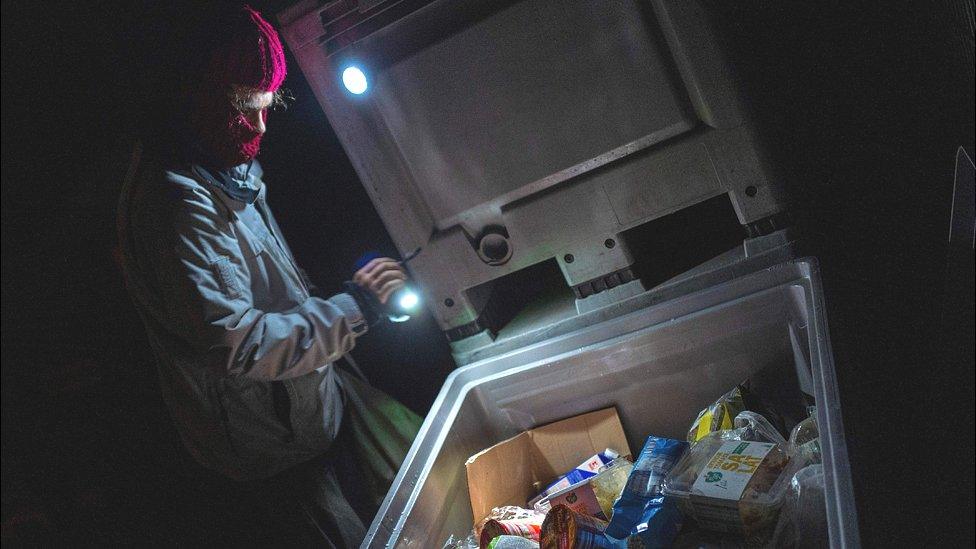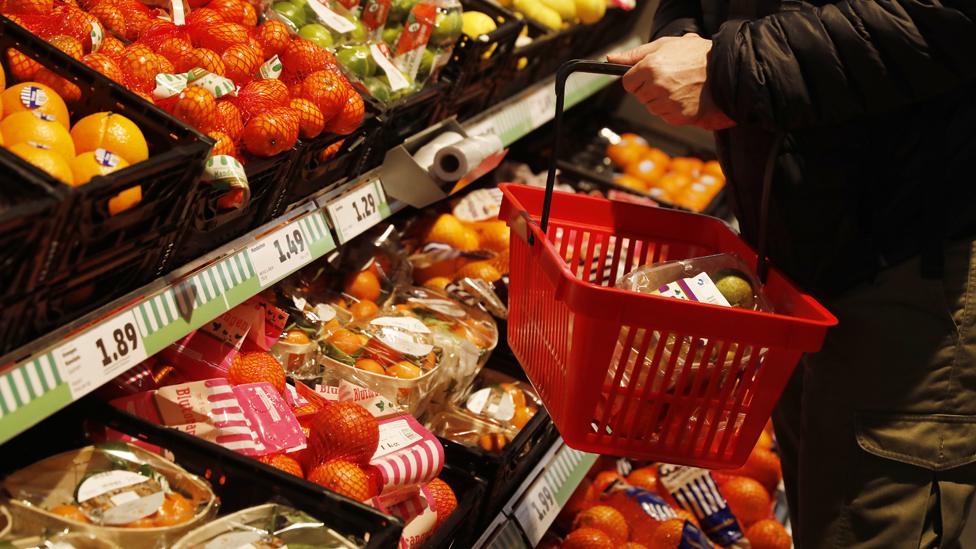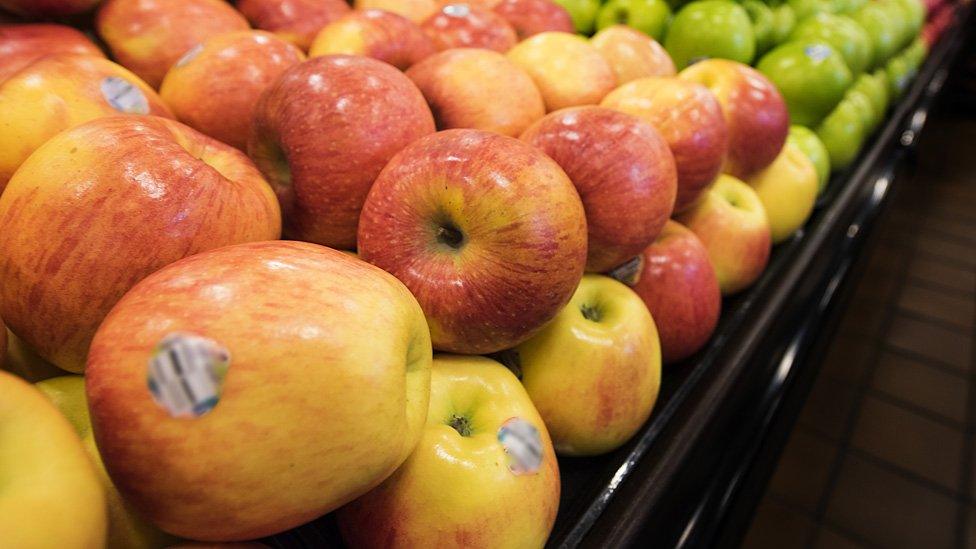German students say fines for stealing supermarket waste 'absurd'
- Published

A food scavenger examining supermarket bin contents in Berlin
Two students who were fined for taking food from a supermarket waste bin have lodged an appeal with Germany's highest court.
Franziska Stein (26) and Caroline Krüger (28) were each handed a €225 (£194) suspended fine and told to spend eight hours helping in a food bank.
That ruling from Bavaria's top court upheld a local court's verdict that they were guilty of theft.
The women argue that they are helping society by reducing food waste.
In a blog, they call the Bavarian ruling "absurd", external because "in a time of climate crisis, the protection of our livelihoods is being downgraded".
In June 2018 they unlocked an Edeka supermarket waste bin at night in Olching, near Munich, and fished out still-edible fruit, yoghurt and vegetables.
But they were then stopped by two police officers who emptied their rucksack and made them put the food back in the waste bin.
How much food waste do we produce?
A Berlin non-governmental organisation, the Society for Civil Rights (GFF), is helping the students in their plea. GFF argues that such cases, like possession of small amounts of cannabis, should not go to court.
The case went to the Federal Constitutional Court in Karlsruhe on Friday.
So is taking discarded food illegal?
German media report that the definition of "property" is key in this case.
The prosecution argued that the waste bins belonged to the supermarket and the students had no right to decide what to do with the contents.
The daily Süddeutsche Zeitung poses the moral question, external: does theft still count as theft when it is socially useful?
By extension, the "Robin Hood" argument could be used to justify robbing morally dubious banks in order to distribute their cash to poor people.
It would be different if, say, the supermarket had left unsold food in an open container for people to help themselves to it.
Under German law, the students in the Olching case could be liable for fines of €1,200 each.
Isn't this taking the concept of 'theft' too far?
The students say their action was justifiable, as Germany throws away at least 12m tonnes of food annually - according to the federal government. The conservation group WWF estimates the quantity to be 18m tonnes.
Consigning that waste to landfill, or turning some of it into animal feed, costs a lot of money and fuel.

Confusion over the labels "use by" and "sell by" contributes to food waste
Environmental activists say far too much perfectly good food is thrown out by retailers and consumers. Disposing of that waste mountain contributes to pollution and global warming, they argue.
Meanwhile, millions of poor people struggle to afford healthy food and many have to rely on food banks run by charities.
The students' case may end up in the German parliament, where MPs could make it law for supermarkets to reduce the amount of food they discard, or to distribute unsold food to charities.
Read more on similar topics:
In June the major food retailers in the UK committed, external to halve food waste by 2030 and raise public awareness of the issue.
The UK government says about 10.2m tonnes of food and drink are wasted annually in the UK - worth about £20bn.
An initiative in Paris is trying to persuade restaurants to turn food waste into compost
France passed a law in February 2016 forcing supermarkets to donate unsold food to charities and to other groups helping the poor and needy.
French daily Le Figaro says that, according to food bank data, the amount of unsold food collected rose from 36,000 tonnes in 2015 to 46,000 tonnes in 2017.
- Published27 September 2019

- Published18 August 2015
